
The battle to replace Antonin Scalia on the Supreme Court is gut-check time in the Senate, just as it is in the presidential race. There are 54 Republican Senators; so long as at least 51 of them remain determined to prevent President Obama from appointing a new Supreme Court Justice, none will be confirmed until Obama is out of office. And realistically, as things stand today, only one, maybe two Republican Senators can safely vote to confirm any Obama nominee. Of course, if Donald Trump were to win the GOP nomination, that dynamic could change in a hurry.
Let’s start by reviewing the rules:
1. President Obama can nominate to a Supreme Court vacancy whoever he wants, whenever he wants, so long as he holds office. Article II, Section 2 gives him this power:
He shall have power, by and with the advice and consent of the Senate, to make treaties, provided two thirds of the Senators present concur; and he shall nominate, and by and with the advice and consent of the Senate, shall appoint ambassadors, other public ministers and consuls, judges of the Supreme Court, and all other officers of the United States, whose appointments are not herein otherwise provided for, and which shall be established by law: but the Congress may by law vest the appointment of such inferior officers, as they think proper, in the President alone, in the courts of law, or in the heads of departments.
2. The Senate must “Consent” to any such nominee or they do not become a Supreme Court Justice. Article II, Section 2 likewise gives the Senate this power.
3. The Senate makes its own rules, a power granted by Article I, Section 5: “Each House may determine the rules of its proceedings, punish its members for disorderly behavior, and, with the concurrence of two thirds, expel a member.” That power means the Senate can decide for itself how many votes are needed to bring a judicial nomination to the floor for a vote. It is constrained by Article II, Section 2, however, in one way: while a treaty needs a two-thirds vote to pass, a nomination once brought to a vote does not, and by implication requires only a majority.
That’s it. The rules say no more. Everything else we know about Supreme Court nominations comes down to either (1) norms of behavior drawn from precedent and/or (2) political power drawn from the sentiment of the voters. I won’t get into the norms here for now, except to say that we live in a political era in which norms have fallen like so much straw in the wind, and with stakes this high nobody realistically would expect either political party or either branch of government to be constrained by them.
So power it is.
Which brings us to the true nature of this crisis. Because the current mood among Republican voters – i.e., the people who actually elected these 54 Senators, and upon whose votes they would rely for re-election or advancement – is one of rebellion. That rebellion is almost aimless at this point; people angry at the failure of Republican officials to deliver what they promised are turning to the likes of Donald Trump, who promises completely different things at odds with what conservatives are asking for. Over and over, we have seen Republicans on the Hill promise a win and deliver a stalemate, or promise a stalemate and deliver a defeat.
The one glue that holds together parties in this context is the Supreme Court. Everyone understands that the Supreme Court has power to take decisive, often permanent actions in ways that far exceed the powers of the elected branches, and that a single Justice can sway the balance of the Court for decades. In a republic, this should not be so – but it is.
Democrat-appointed Justices have traditionally been very faithful to the desires of the voters and elected officials who appoint them; Republican-appointed Justices have not, to the point where even Chief Justice John Roberts, a man who has voted the conservative line on all but a small number of big cases in his tenure, is a figure of such abuse to GOP primary voters that Ted Cruz and Donald Trump were playing ‘hot potato’ with his name Saturday night, each eager to avoid him.
In such a setting, no Republican Senator who wants to keep his or her job could afford to vote – on a cloture vote or a vote on the merits – to let Obama appoint a liberal to replace Justice Scalia on the eve of a Presidential election. That would be the last straw, the unforgivable sin, that would cause that Senator’s Republican backers to choose a primary, or staying home, or voting third party. Such threats have often been made in the past, but always the refrain has been, think of the Court. And one could even excuse voting for Kagan or Sotomayor – given the timing and the Democrats’ majority, Obama was bound to get his way on those nominees. But not this time.
Senators like Pat Toomey, Rob Portman, Ron Johnson, and Kelly Ayotte know this – much though they may fear the potential wrath of a purple/blue general electorate this fall, they know their hope for survival rests on keeping their own troops (Ayotte’s being the most restive after the New Hampshire primary) united behind them. Ayotte, for example, has already vowed not to confirm any nominee until after the November election.
So who do we have to worry about most? Vigilance by activists will be required to keep all 54 straight, but mainly, two types of Republican Senators.
One is the two blue staters. There are eleven Republican Senators who presently represent states that voted twice for Barack Obama. One, Marco Rubio, is running for President and can’t possibly buckle, nor is he inclined to. Six are up for re-election in 2016, and know peril lies in any choice, but five of those (Toomey, Portman, Johnson, Ayotte and Chuck Grassley) are in states where Mitt Romney got at least 45% of the vote, states this year’s nominee is likely to be hotly contesting. Four of those need to avoid any defections or losses of enthusiasm to survive (Grassley might not). Besides Grassley, that leaves Dean Heller, Joni Ernst, Cory Gardner, Mark Kirk, and Susan Collins.
Ernst and Gardner, I’m not worried about. Heller may be a bigger problem, but he survived 2012 and faces the voters next in a midterm, so he is more likely to be concerned about his right flank than his left.
Kirk and Collins are a larger problem – both are in deep-blue territory, states where Romney got less than 41% of the vote, so they need Democratic-leaning votes. Collins is freshly re-elected, Kirk is up this fall. Collins has struck the most conciliatory note yet of any Republican:
Sen. Susan Collins of Maine, a moderate Republican who is not up for reelection, came the closest to breaking with McConnell and the GOP presidential field, criticizing both parties for “speculating so soon about a new Supreme Court nominee given that Justice Scalia died only yesterday and unexpectedly.”
She said she has “no insights regarding the president’s intentions,” but sounded open to considering a nominee.
“More than any other appointment upon which the Senate is called to pass judgment, nominees to the Supreme Court warrant in-depth consideration given the importance of their constitutional role and their lifetime tenure, Our role in the Senate is to evaluate the nominee’s temperament, intellect, experience, integrity, and respect for the Constitution and the rule of law,” Collins said in an emailed statement.
Of course, nobody on the GOP side will begrudge her some tentative words, so long as she holds the line in the end. But then, Collins is such a blue-state fixture that she may feel she can safely go rogue without consequence.
Kirk is in a tougher spot, because Illinois is not Maine; it’s basically a red state with one giant blue city that controls the elections. And turnout in his race will likely be driven more by the presidential than the Senate race. But the incentives probably align for him to desperately avoid antagonizing the red parts of his state – although I would expect Mitch McConnell to give him a free pass to vote the other way if enough votes are there to block the nominee, especially on a cloture vote.
That leaves the other main area of risk: retiring Senators. Assuming Grassley doesn’t surprise us, there are three of those announced at present, one of whom is Rubio. The others are David Vitter and Dan Coats. Vitter, for all his flaws and the bitterness of the end of his road in the LA-GOV race, is a solid conservative. Coats, I’d be more concerned about, a generally reliable vote in things like SCOTUS nominations but a guy who is plainly hanging it up for good 16 years after his first retirement from the Senate.
Still, counting the noses, angry activists should have enough fear put in the hearts of enough Republican Senators to compel those who won’t stand on principle to stand with principle.
Which brings us to Trump. Because all of this assumes that there will, in fact, be a nominee at the top of the national ticket who to one extent or another energizes/unifies Republican voters and plans to contest the fall election as a Right/Left battle. But a Trump nomination would scramble all that – we’d have a nominee with no loyalty to social or constitutional conservatism who would fracture and depress the base and as a result need to hunt for votes among disaffected Democrats instead. In such circumstances of total party collapse, the incentives for Senators seeking re-election would change dramatically. A Trump nomination might thus give Obama the power to get Scalia’s successor confirmed before November. Burning down the party, after all, means burning down party discipline, and instilling an ethos of every man for himself.
Like so many things, the stakes now are high, and a choice of Trump would hand permanent victory to the Democrats.



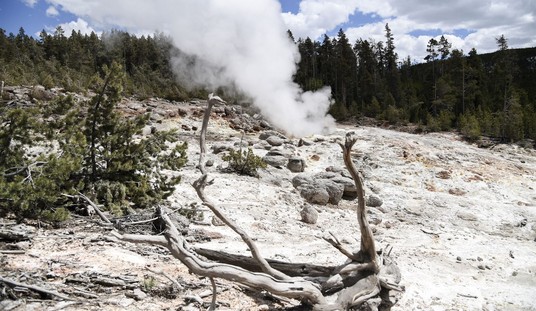

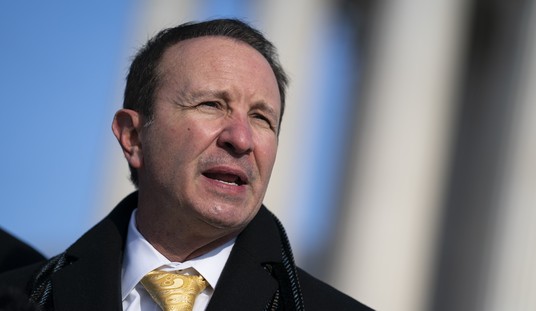
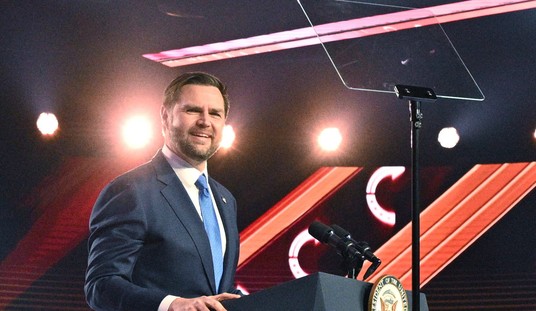
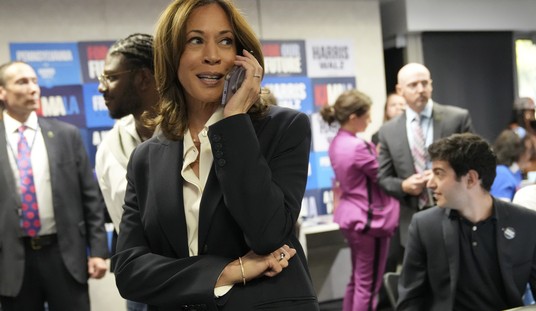



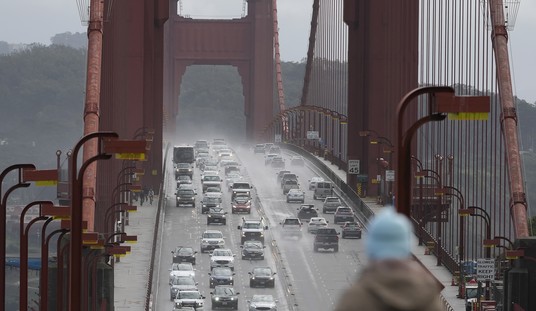
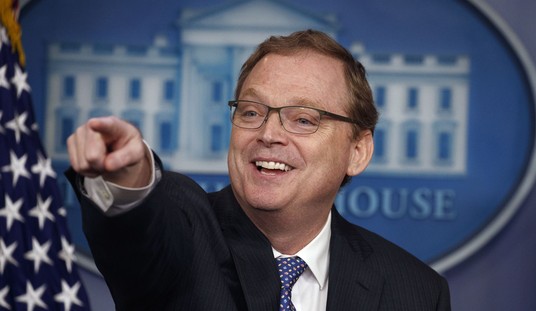
Join the conversation as a VIP Member